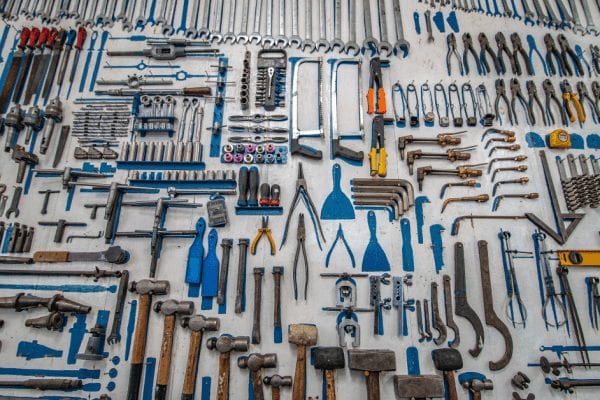Rehabilitation. Despite the best efforts of health advocates, practitioners, and those who have benefitted from it, the negative stigma of rehabilitation remains.
The reality is 1 in 20 Australians has an addiction or substance abuse problem and 1 in 5 Australians have experienced a mental disorder in the last 12 months. And yet, only a small portion of these individuals will ever seek help.
But why?
From severity to fear, we’ve pulled together five reasons we often hear as to why people avoid (or put off) seeking help through rehabilitation.

1. “I don’t deserve help to get better.”
Putting ourselves first is often unnatural to a lot of people. In fact, most of us are experts at deeming ourselves and our health the lowest priority. Coupled with the guilt that many feel for turning to alcohol or drugs, it’s completely understandable why people feel like they don’t deserve to seek professional help.
Seeking help from a professional is not something to be ashamed of. Mental health, stress, addiction – they don’t discriminate.
It can happen to anyone, regardless of status, income or family background. More likely than not, someone you know is also struggling and the chances are that others are not aware of this.
The inherent dignity of every individual means that everyone is deserving of help. Everyone deserves to be able to live life free from addiction, mental health or stress – and rehabilitation can help individuals do that.
2. “It’s not bad enough.”
Say you find a mole on your arm that wasn’t there before, and you go to a skin specialist to get it checked. Then imagine the doctor saying: “It could be cancerous, but it’s too early to tell. We can cut it out just in case, or we can wait to see if it changes.” You’d want that mole cut out, wouldn’t you? Even the small chance that it could be cancerous would be enough to convince most people that it needs to go.
But we have don’t carry that same mentality of prevention and action when it comes to our mental health or addiction concerns.

When we are not performing at our best due to stress, dependency or mental health concerns, every area of our life suffers. Our capacity in families, workplaces, relationships are all diminished. No matter how bad the concern is, seeking help early is always the best option.
3. “I don’t have time for rehabilitation.”
In a society where busy seems to be better, we often hear that taking a few weeks out for recovery is not something that people can commit to. Whether it’s work, family or life commitments pulling you in every other direction, there will likely always be a reason to delay seeking help. But putting aside intentional time to prioritise your health is one of the best things you can do and will pay off in dividends in the years to come.
Residential rehabilitation programs, while from the outset seem time consuming, are in fact one of the most efficient ways of getting help.
Our model of change theory is that the therapeutic load – including the weight, breadth and frequency of therapeutic input – provides improvements in mental health and dependency.
In other words, the intensity of The Banyans program and its multidisciplinary approach to rehabilitation, provides those seeking help with significant results in the space of mere weeks. Compare that to regular, weekly psychology appointments, where it’s likely that significant change will not be made for months.
It’s time to get well.
4. “I can do it myself.”
The stigma around rehabilitation means that often we will downplay the severity of our concerns, negating the need to seek professional help. Taking the first step to admit you need help from someone else is a brave, yet daunting decision.
But when it comes to mental health and dependency concerns, engaging with professionals who specialise in helping people will always be the best avenue. Just like we don’t engage lawyers to service our cars, the best people to help are those who specialise in addiction or mental health.

The Banyans has a full team of experts including psychiatrists, psychologists, addiction medicine and eating disorder physicians, nutritionists, therapists, registered nurses, exercise physiologists and more. This gives those seeking help every opportunity to rediscover what living well feels like.
5. “What if rehabilitation doesn’t work? And what if it does?”
The decision to seek help is nothing short of brave.
But even once the decision has been made to reach out, it comes with a myriad of fears surrounding what life will be like on the other side of rehabilitation. The fear of failure. Or even the fear of success.
Questions like “Does rehabilitation actually work?” or “What will I be like if I get help?” often run through people’s minds. At the end of the day, rehabilitation can work. A variety of factors play a part in its success. This includes the willingness of the individual, the environment they’re in, and the expertise behind a program.
Every person’s story, struggles and experiences are individual, which is why our programs at The Banyans are completely tailored for each individual as well.
Comprehensive internal research has shown The Banyans is achieving exceptional outcomes from our treatment programs. On average, our guests have experienced an improvement of 74% in their dependency measures after a stay here.
Other outcomes include:
- a 64% improvement in depression;
- a 59% improvement in anxiety; and
- a 60% improvement in stress levels.
If you’d like to learn more about our case studies, and why The Banyans’ program yields such positive results, you can view them here.
Seek help today from Australia’s leading private rehab centre. Call us now on 1300 BANYAN (1300 226 926) or complete an online form for a confidential discussion about how you or someone you care about can benefit from The Banyans.








